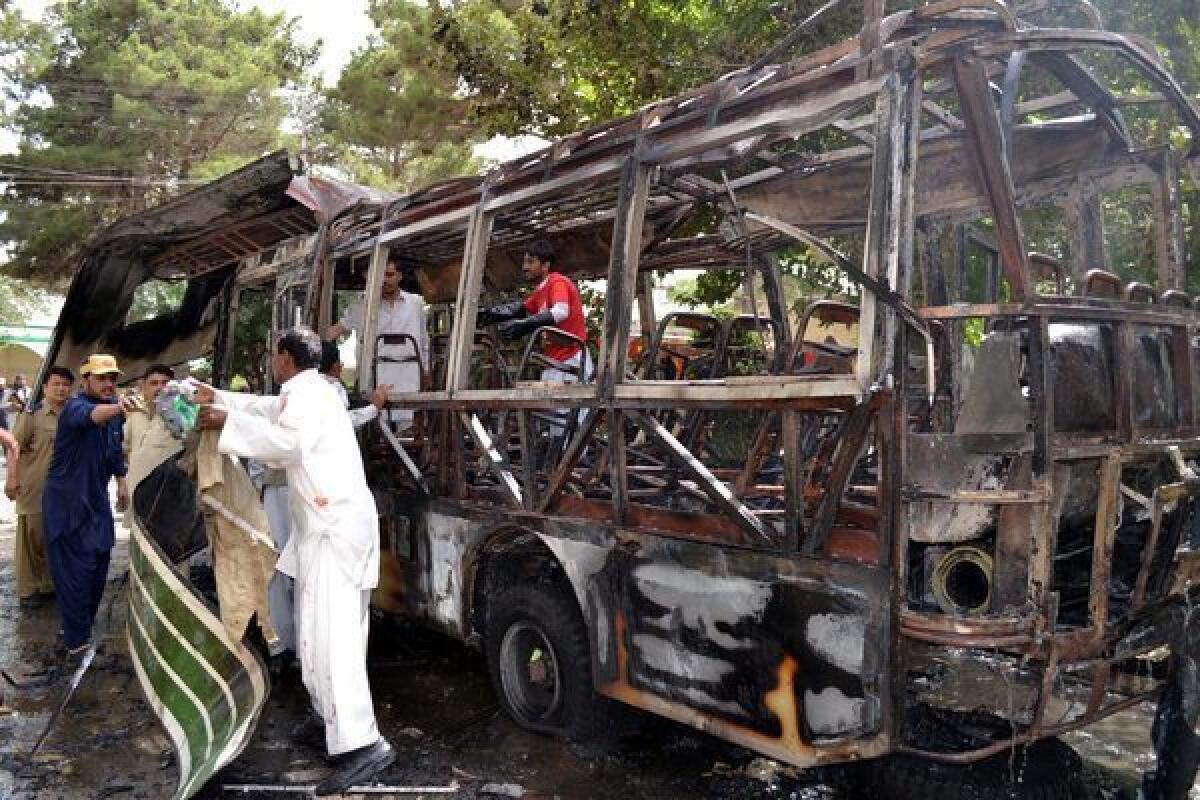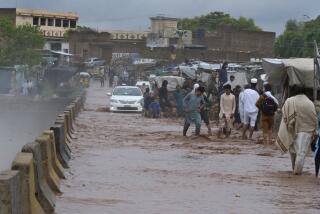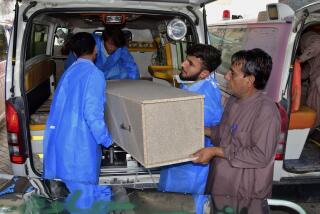Bombings, militant takeover of hospital kill at least 15 in Pakistan

ISLAMABAD, Pakistan — Militants took over sections of a hospital in the southern city of Quetta on Saturday after bombing a women’s university bus and detonating a second bomb at the hospital in what authorities said were coordinated attacks that killed at least 15 people.
The violence underscored the challenge that the volatile southern province of Balochistan poses for Prime Minister Nawaz Sharif as he begins to tackle militancy in the troubled South Asian nation.
As of early Saturday evening, eight gunmen had seized parts of the Bolan Medical Complex in Quetta, Balochistan’s capital, and were involved in a fierce firefight with Pakistani police and special forces units surrounding the building, local police said. An unknown number of patients, doctors and nurses were still inside the hospital, but it was not known yet whether they had been taken as hostages.
The violence began Saturday afternoon at the Sardar Bahadar Khan Women’s University in Quetta. Female students had just boarded a bus on campus and were leaving when a homemade bomb inside the vehicle exploded. At least 11 female students were killed and 20 others injured, local police said. Many of the wounded were critically injured.
The injured students were taken to Bolan Medical Complex in Quetta, where a second bomb was detonated inside an emergency department corridor, police and federal officials said. Militants who were able to get inside the building then opened fire, killing Mansoor Kakar, the Quetta city administration’s second in command, who had rushed to the hospital after hearing about the bus blast.
Sharif and President Asif Ali Zardari condemned the attacks as “cowardly and inhuman.” In a prepared statement, Sharif added that “no effort will be spared to save Pakistan from such acts of terror.” No one had claimed responsibility for the violence as of Saturday evening.
Sharif was elected prime minister by parliament last week after his party, the Pakistan Muslim League-N, won a convincing victory in legislative elections in mid-May. He and his party are seen by many in the country as being soft on militants, and attacks like the violence in Quetta on Saturday is likely to put pressure on the 63-year-old leader to clamp down on extremists responsible for bombings and other terror attacks that have killed thousand of civilians in recent years.
Balochistan, the country’s poorest and most sparsely populated province, has for years been plagued by the presence of an array of militant groups, including pockets of Taliban commanders and fighters, sectarian organizations like Lashkar-e-Jhangvi that prey on the province’s Shia Hazara minority, and Baloch separatists.
In an outbreak of violence in Balochistan on Saturday, militants used rockets and hand grenades to attack a historic 19th century residence associated with Pakistan’s founder, Muhammad Ali Jinnah, in the town of Ziarat, about 75 miles north of Quetta. The attack partially destroyed the house, according to federal officials.
More to Read
Start your day right
Sign up for Essential California for news, features and recommendations from the L.A. Times and beyond in your inbox six days a week.
You may occasionally receive promotional content from the Los Angeles Times.






